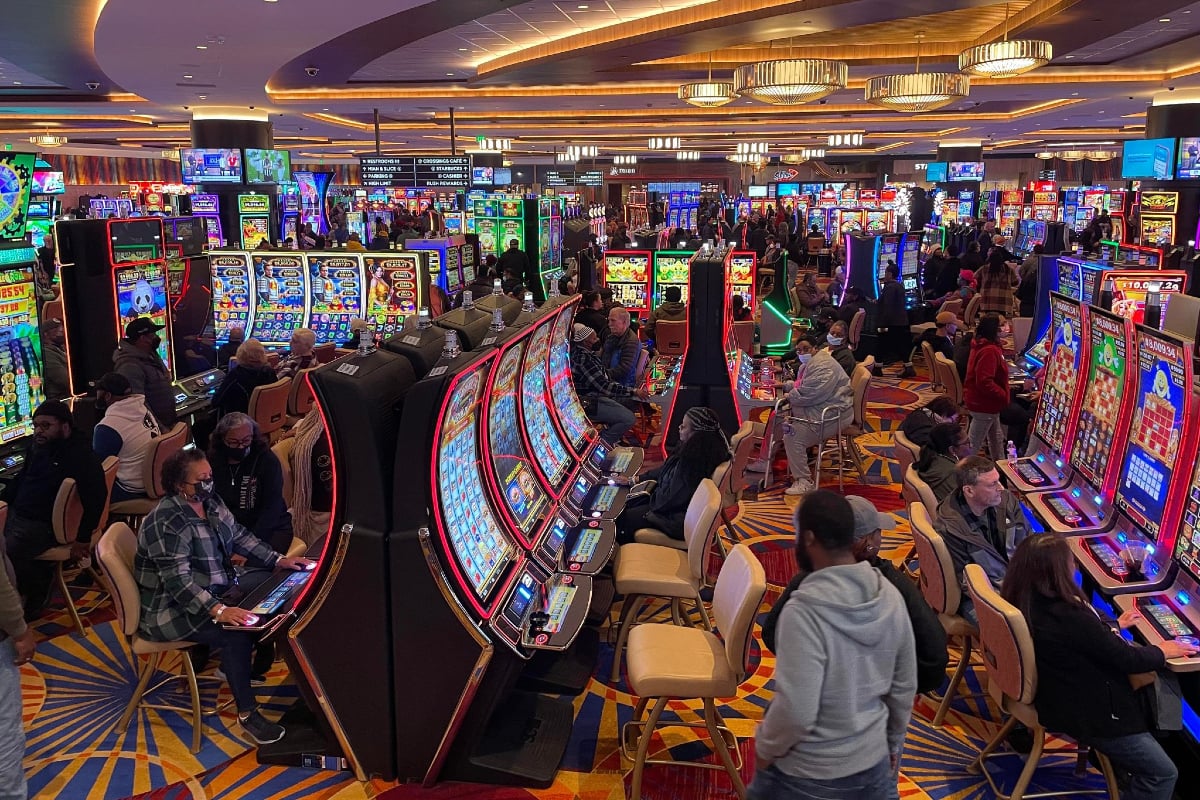
Gambling games have long been a staple in human culture, providing not just entertainment but a intriguing reflection of our hopes, dreams, and concerns. From the rotating wheels of a slot machine to the skill-based strategies of poker, these games represent a range of human feelings and events. At their core, casino games are not just a chance to win money; they are a snapshot of life itself, where risk and reward merge and fortunes can change in an instant.
As players gather around tables or sit in front of vibrantly illuminated machines, they participate in a tradition that transcends mere gambling. These games echo our innate desires for relationships, excitement, and the pursuit of luck. They also unveil deeper truths about human nature, such as our relationship with fate and the thrill of uncertainty. In exploring casino games, we uncover not only the rules of play but also the complex weave of the human experience, showcasing our intertwining narratives of aspiration and reality.
The Psychology of Gambling
Wagering is intrinsically connected in human psychology, tapping into various emotions and wants. The thrill of risk-taking is a core aspect that draws players in, whether the thrill of spinning a roulette wheel or the anticipation of drawing a winning hand in poker. This rush of adrenaline is often compared to other forms of thrill, as the unpredictability of outcomes triggers a unique psychological response. Players often find themselves entranced by the chance of winning big, leading to an irresistible draw toward casino games.
Another, a crucial component of the psychology behind gambling is the concept of hope and aspiration. Players often indulge in dreams of financial freedom and the luxurious lifestyle that can follow winning. This optimism fuels their continued participation in casino games, as it provides a sense of meaning and the conviction that a life-changing win could be just one bet away. The story of overcoming odds and achieving success resonates with many, reinforcing their commitment to play and engage with these games.
Finally, social dynamics play a crucial role in gambling psychology. Gambling venues are designed to foster social interaction, where players gather to share the journey of wins and losses. This communal aspect not only enhances enjoyment but also influences behavior, as individuals often mimic the actions of others in their vicinity. The collective approval found in mutual thrill can enhance the emotional experience, making casino games a mirror of not just personal desires but also shared involvement within the gambling community.
### Risk and Reward: A Double-Edged Sword
Gambling activities embody the fragile balance between danger and reward that resonates deeply with the human experience. The excitement of placing a wager is often accompanied by a jolt of energy, as gamblers are confronted with the possibility of striking it rich, yet cognizant of the possibility to lose. This twofold experience reflects a fundamental aspect of life: the paths we choose often come with intrinsic risks, and the pursuit of reward can push us to embrace risks we might not otherwise consider. In this way, casino games reflect real-world choices, enticing players to gamble not just their funds, but also their dreams.
The allure of grand jackpots and winnings fuels a sense of optimism, motivating gamblers to dream of a better future that could emerge from a lucky spin of the roulette or flip of a card. casino online non AAMS This positive outlook can motivate individuals to engage in greater risks, pushing them to push their boundaries in search of financial gain. However, just as in life, the results of these risks can lead to both victory and despair. The narratives of both big winners and those who have lost everything at the tables demonstrate the unpredictable nature of luck and its impactful repercussions on our existence.
Ultimately, the interaction of engaging with gambling activities serves as a vivid illustration of the nature of humanity. Every session played is filled with the tension of ambiguity, as gamblers weigh the rewards against the dangers. This balance not only highlights the thrill that comes with betting but also unveils the weaknesses that come with the desire for more. As we navigate the challenges of decision-making and results in both the casino and in life, we find that the search for benefit shapes our identities and lives in deep ways.
Community and Isolation in Casino Culture
Gambling environment is a special mix of social engagement and personal pursuit, reflecting the dualities of individual experience. Gamblers often come together around games, experiencing in the thrill of the game, celebrating wins, and commiserating over losses. This social aspect is crucial, as it creates a sense of community and camaraderie among varied groups of people. Regular visitors to gaming establishments may build friendships and establish routines, turning the gambling venue into a second home where they feel linked to a greater community of players.
However, the attraction of casino games can also result to loneliness. As players become immersed in the thrill of playing, they may withdraw from personal connections or neglect to interact with the world outside the casino. For some, the search of a windfall can distract from genuine connections, leading to loneliness. The experience of being among people yet experiencing solitary is not uncommon, as the attention shifts from collective fun to the private concerns of each individual’s path.
This interaction of society and isolation creates a vivid tapestry that defines gaming culture. It showcases the complexity of social interactions, where joy and sorrow coexist. Gambling venues serve as both a sanctuary for social engagement and a stage for individual challenges, demonstrating how deeply connected our yearning for companionship and the personal quest for wealth can be. In navigating this environment, players confront their own stories—seeking both the rush of the wager and the fellowship of fellow players, eventually reflecting the broader spectrum of individual experience.
